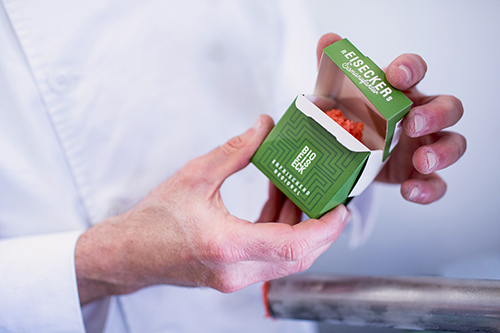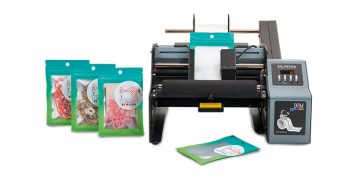Maintaining the proper temperature throughout the cold chain is crucial. Ice cream should be packed and transported at ultra-low temperatures, typically between -20°C and -30°C (-4°F to -22°F), to prevent melting and preserve its creamy texture. Specialised packaging materials like insulated containers or dry ice are utilised to maintain the required temperature range during storage and transport.
Packaging material and design play a significant role in protecting the product. Sturdy containers made from materials such as high-quality paperboard or durable plastics are used to withstand handling and prevent physical damage. Airtight seals and moisture-resistant barriers are essential to prevent the formation of ice crystals and maintain the smoothness of the ice cream.
Furthermore, aesthetics and information are vital aspects of ice cream packaging. Vibrant colors, captivating imagery, and clear labeling conveying flavor profiles and nutritional information enhance consumer appeal and facilitate informed choices.
As sustainability becomes increasingly important, manufacturers are exploring eco-friendly packaging solutions. Biodegradable materials and packaging made from recycled and renewable resources are being considered to minimize environmental impact and so it’s cardboard packaging which has recently gained popularity. Advantages like cost-efficiency, customizability, and eco-friendliness are pushing its competitors into the background.
Cardbox Packaging is an experienced ice cream cup producer, offering wide range of cup sizes starting at 100 ml to 550 ml. For sizes of 100 ml to 250 ml there is also the popular option to put the wooden spoon in the lid, resulting in ice cream to go. Thanks to the wide experience of the ice cream packaging industry, Cardbox Packaging successfully developed square box packaging for ice cream, in order to get unusual shape and to impress at first sight.
“My packaging solution, developed together with graphic designer Michael Schumer and the team from Cardbox Packaging, reflects the demand for sustainable individuality. With the corner in the name, a square solution was obvious,” said Michael Reisecker, describing the concept of square ice cream, creating the whole corporate identity of small regional ice cream manufacturer Reiseckers Eismanufaktur. “The cubes (pictured above) are folded in cooperation with Lebenshilfe. The inlaid wooden spatulas are from a local carpenter. The disposable paper packaging was important to me because the CO2 footprint is lower than, for example, glass solutions. The hand-sealing is a symbol of the craft of making ice cream. Organic, regional and seasonal are elementarily important to me and they are also visually embodied in the organic cubes,” he concludes.
The production is always customised to individual customers. Depending on requirements, a final packaging is practical and sustainable at the same time.




















